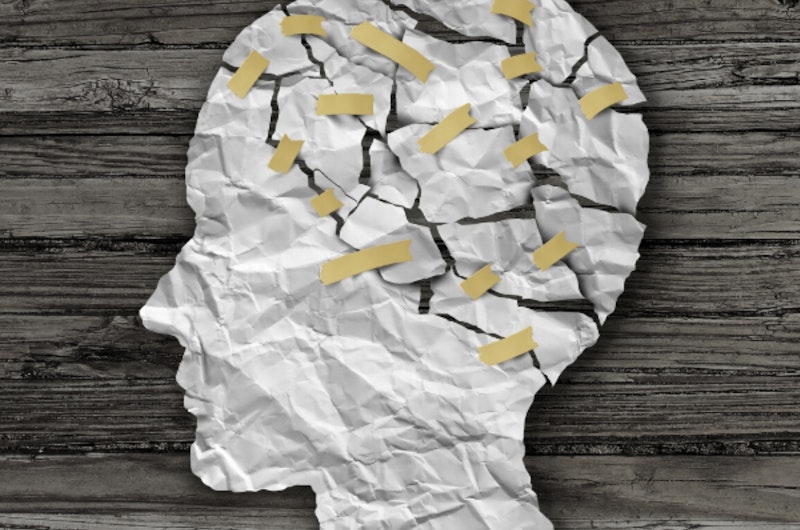You wake up and go to work. On the way, maybe you pop an amphetamine or two and/or consume caffeine in some form. You need to be perked up for the day ahead, because you’re not thinking about work. You’re thinking about after work when the kids need to be picked up and driven to soccer practice or pole-dancing class. But you have dreams, too. You’ve been told your entire life that you matter. You simply can’t account for the fact that you live in a middle-brow suburb, struggle to pay bills, and drive a late-model Toyota. Your teachers and parents said you were destined for great things. And it’s only great things that’ll make you happy. Happiness, as William James put it, is the “chief concern” of “human life.” It “is in fact for most men at all times the secret motive of all they do, and of all they are willing to endure.” What are you willing to endure to secure your happiness?
My mother bought a piano when I was 13. It was an early-20th century Kohler & Campbell upright. I loved that it was old, because it stirred me to wonder about the fingers that played it long before mine (a subject on which I wrote a great deal of terrible fiction). She bought me lessons, too, though, the money soon dried up. But my teacher, who either took pity on me or believed in my abilities, decided to teach me for free. I practiced in a dimly-lit half-finished basement for hours each day. I’d waste weekends practicing, and on school days I’d often skip, head to the basement, and pick up right where I left off the day before.
Silly fantasies of stardom would sometimes invade my mind, but what mattered to me was mastery of the material. I engaged Czerny’s, Schmitt’s, and Hanon’s exercises. Scales, arpeggios, and octave work alone would occupy hours. I committed to memory works by Beethoven, Chopin, Mendelssohn, and Joplin, among others. I’d push through awkward and mistake-strewn sight-reading sessions to the merciless rhythm of a metronome, all for the joy of creating something (in this case, the perfect performance of a piece of music) that would allow me, if only for moments, to forget the ugliness in my life and focus instead on what was much more in line with the beautiful and vitalizing aspects of human artistic expression. There was only one problem; I had to perform, and I cared little for public performances. I gave recitals and performed in regional competitions, chalking it up to the cost of doing business, but all I wanted was the basement, with my sheet music and my Kohler & Campbell piano, away from the chaos to see what I could offer.
I spoke little in those years, but paid attention to what authority figures (parents, and later step-parents) said. And the message was clear. At first, the signs were in their actions. The ship was sinking. My parents were headed for a divorce. I had to get a job because I was unwilling, or unable, to endure total dependence on adults who weren’t only suffering turmoil in their lives, but responsible for caring for my three younger brothers, two younger sisters, and one older sister (though she got the message as well). I needed to get out as soon as possible. I quit the piano, dropped out of school, and made the choice to embrace the life of a wage worker so that I might cease to be a burden.
Kouri Richins was willing to endure allegedly killing her husband to get what she wanted. Richins had ambitions to write children’s books. On March 7 of this year, she self-published Are You With Me? “A heartwarming and reassuring book,” that purports to help children process their grief. Written by “a loving mother who personally faced this challenge.” It’s imperative, today, for an aspiring “creative” to have “lived experience.” Richins might’ve believed that if one wishes to chase a dream, and if that dream involves, in this case, writing a children’s book on a basic human emotion—the terrifying void one feels upon the loss of a loved one.
Many refer to this phenomenon as having “trauma points.” If you rack up enough of them, then you’re permitted to speak with authority on whatever form of trauma you’ve endured. Maybe you suffered a difficult childhood, were bullied in school, or perhaps the barista at your local Starbucks messed up whatever sort of overpriced, corporate swill they sell there. But what if life has handed you a sweet ride? What to do if you have yet to suffer the sort of grief that comes when someone you care about disappears from your life forever? If that’s the case, then you must create the conditions yourself.
Richins didn’t murder (allegedly) her husband because she needed the justification to write a children’s book. She wasn’t following a dream. She didn’t labor to craft the most beautiful thing that she could, as I naively did in the dark basement all those decades ago. Richins understands the world, and I didn’t. It’s not about the thing that you love (or claim to love). It’s about how to receive the authority that you need to market it, then derive admiration for doing it, and finally to make a lot of money in the process. Or, if not money, then the accolades of strangers on the internet, no matter what you have to do, or who you have to hurt. This is the way. Content creators don’t sell their creations in the marketplace of ideas, they sell themselves.

